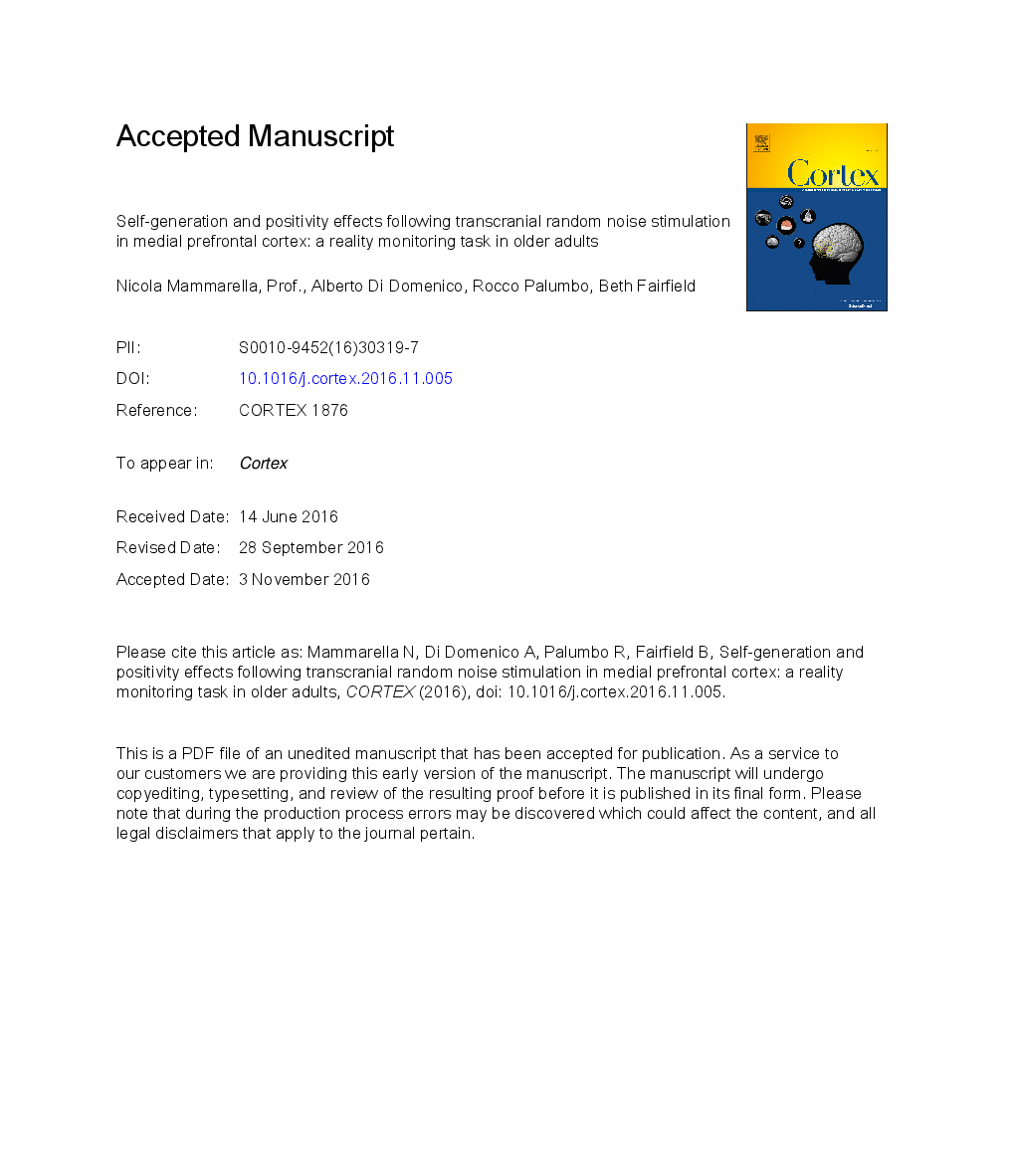ترجمه فارسی عنوان مقاله
اثرات خودآزمایی و مثبت به دنبال تحریک سریع غلظت سریع در کورتکس پیشروی مغز متوسط: کارکرد نظارت بر واقعیت در افراد مسن
عنوان انگلیسی
Self-generation and positivity effects following transcranial random noise stimulation in medial prefrontal cortex: A reality monitoring task in older adults
| کد مقاله | سال انتشار | تعداد صفحات مقاله انگلیسی |
|---|---|---|
| 158145 | 2017 | 21 صفحه PDF |
منبع

Publisher : Elsevier - Science Direct (الزویر - ساینس دایرکت)
Journal : Cortex, Volume 91, June 2017, Pages 186-196

